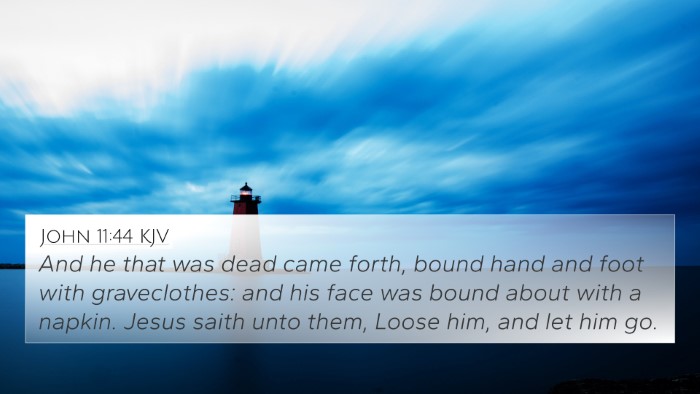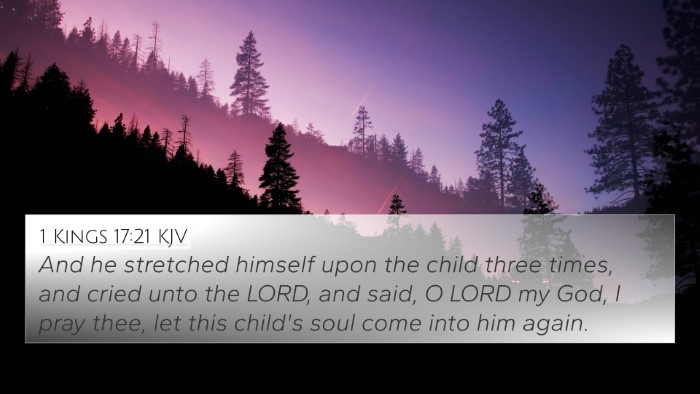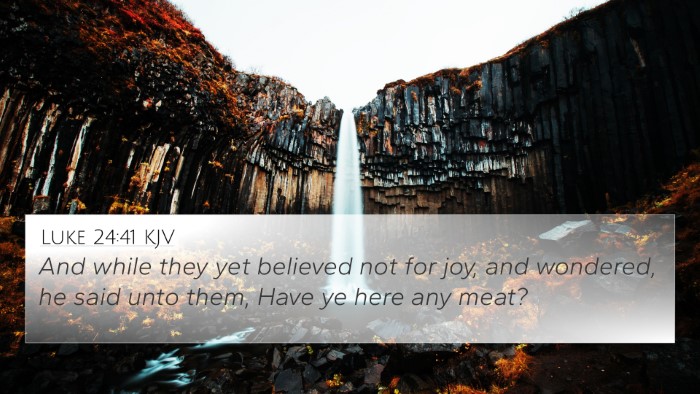Understanding Luke 8:55
Luke 8:55 states, "And her spirit returned, and she arose immediately: and he commanded to give her meat." This verse occurs in the context of the miracle Jesus performed when He raised Jairus's daughter from the dead. The significance of this event and the words of the verse provide profound insights into the nature of Jesus' power and the restoration of life.
Contextual Background
To fully appreciate the meaning of Luke 8:55, it is important to understand its context. The preceding verses recount how Jairus, a synagogue leader, sought Jesus to heal his dying daughter. While Jesus was on His way to Jairus' house, He was delayed by the woman with the issue of blood (Luke 8:43-48). Subsequently, Jairus received news that his daughter had passed away. However, Jesus reassured him that his daughter would be made whole.
Commentary Insights
- Matthew Henry's Commentary: Matthew Henry emphasizes that Jesus, by restoring the girl to life, demonstrates His authority over death. The return of her spirit signifies not just her revival but also the complete restoration of her health, as seen in the command to prepare food for her, indicating she was not merely alive but restored to her former vitality.
- Albert Barnes' Commentary: Albert Barnes highlights the miraculous nature of the event, noting the immediate response of the girl. The phrase "her spirit returned" indicates a divine act of resurrection, as Barnes explores the implications of Jesus' command to give her meat, underscoring the normalcy that accompanies miraculous deliverance, affirming God's intention for life and sustenance.
- Adam Clarke's Commentary: Adam Clarke provides an analysis of the cultural implications of the girl's resurrection. He points out that in Jewish culture, food would have been an expected part of recovery from illness—thus reinforcing Jesus' compassion and care, alongside His divine authority. Clarke suggests that this also indicates the community's restoration process in grieving and healing.
Theological Themes
This verse presents several key theological themes:
- The Overcoming of Death: Jesus' act of raising Jairus' daughter illustrates His victory over death and foreshadows the ultimate resurrection that believers hope for.
- Authority of Christ: Jesus' ability to command life into existence emphasizes His divine authority as the Son of God.
- Compassion and Restoration: The directive to feed the girl emphasizes that Jesus cares for both the spiritual and physical needs of those He heals.
Bible Cross-References
Luke 8:55 connects with several important verses across the Bible, demonstrating thematic connections:
- Matthew 9:25: This verse showcases another resurrection performed by Jesus, further affirming His power over death.
- John 11:43-44: The story of Lazarus emphasizes Jesus' authority and the promise of resurrection.
- Mark 5:41: This parallels the account in Luke and underscores Jesus' command and tenderness in miraculous healings.
- Romans 8:11: This verse discusses the Spirit of God raising Jesus from the dead, which gives believers hope for their resurrection.
- 1 Thessalonians 4:14: The encouragement regarding the resurrection of those who have died in Christ links directly to the resurrection theme in Luke 8:55.
- Hebrews 2:14: This verse discusses Jesus' victory over death, which provides insight into His power shown in Luke's account.
- Psalm 30:3: A prayer of thanksgiving highlighting God's restoration from death connects the Old Testament themes of life and resurrection.
Conclusion
Luke 8:55 is a profound testament to the miraculous works of Jesus Christ, illustrating His compassion, authority, and power over death. Through this single verse, we can engage in a rich tapestry of cross-referenced scripture that enhances our understanding of His divine nature and promises. The connections established through comparing these verses enrich our study and deepen our faith, allowing us to see how inter-Biblical dialogue advances the overarching narrative of redemption in Scripture.
Cross-Referencing in Biblical Study
Utilizing tools for Bible cross-referencing enhances our study experience. By linking Bible scriptures, we can identify connections between the Old and New Testaments. A comprehensive Bible cross-reference guide can help us in recognizing the threads woven throughout the biblical narrative; the thematic Bible verse connections serve as a guide in studying related themes across scriptures.
Practical Applications
In applying the insights from Luke 8:55 to our lives, we can reflect on the nature of faith and seek to understand how Jesus' redemptive work assures us of hope and restoration. Engaging in cross-reference Bible study methods can lead us to a deeper relationship with God as we explore the vast interconnectedness of His Word.






